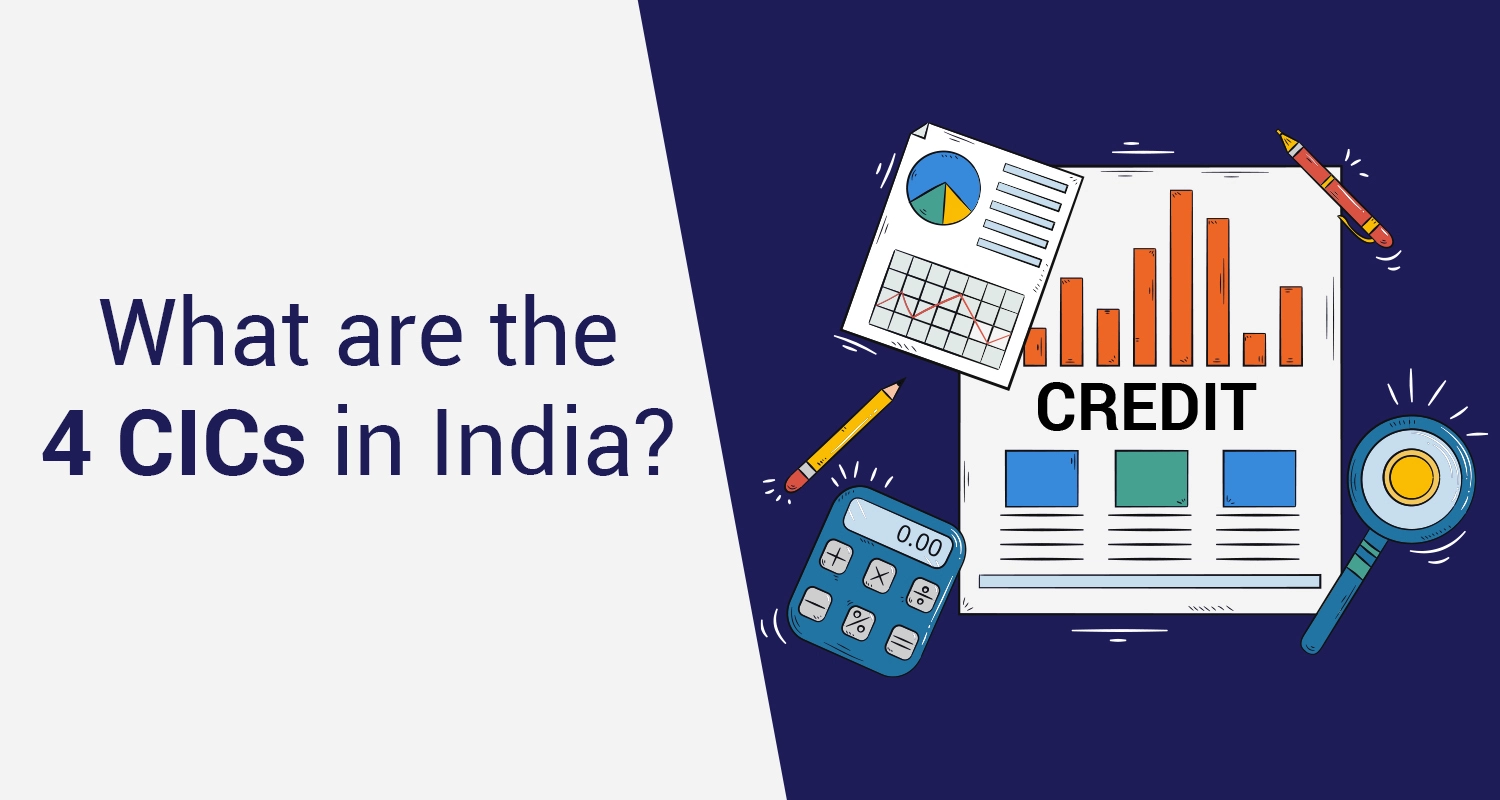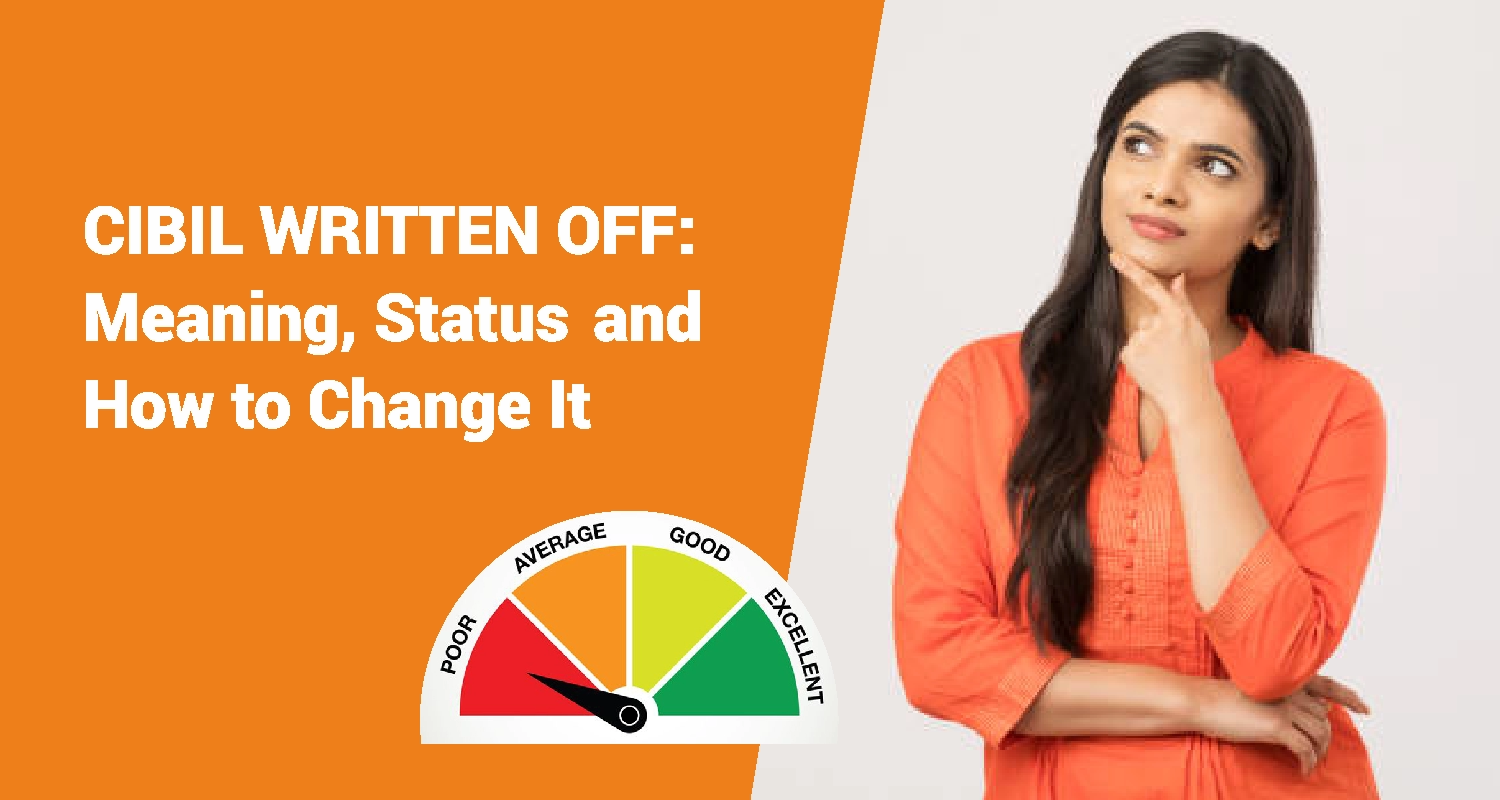What are the 4 CIC in India?

Imagine you're a bank considering issuing a credit card to a customer but need to figure out their ability to repay or past loan defaults. Here's where Credit Information Companies (CICs) step in. CICs use data from lending institutions to create Credit Information Reports (CIRs) for individuals and Credit Company Reports (CCRs) for businesses. India's four main CICs also calculate credit scores for individuals and credit ranks for companies based on their creditworthiness and history. Who are these major CICs, and how do they operate? Let's find out.
What is a Credit Information Company?
Credit Information Companies (CICs) are specialized institutions that maintain records of credits and loans for individuals and businesses. They gather data from public sources, credit transactions, and payment histories related to your loans and credit cards. CICs collate this information from various sources like banks, financial institutions, and lenders to create credit reports and scores. Banks and other financial institutions use these CIC reports and scores to assess your creditworthiness before granting loans or issuing credit cards.
In India, CICs are licensed by the Reserve Bank of India and regulated by the Credit Information Companies Regulation Act, 2005 (CICRA), along with RBI guidelines. According to Section 15 of the CICRA, every credit institution, like banks, must be a member of at least one CIC. Additionally, the act states that a CIC can only obtain information from its member institutions.
Sapna aapka. Business Loan Humara.
Apply NowThe 4 credit information companies in india:
Currently, there are only four credit information companies registered with the RBI. These are Credit Information Bureau (India) Limited (CIBIL), Equifax Credit Information Services Private Limited, Experian Credit Information Company of India Private Limited, and CRIF High Mark.
1. Credit Information Bureau (India) Limited (CIBIL):
TransUnion CIBIL Limited, formerly called Credit Information Bureau (India) Limited, is a renowned CIC that maintains credit records for over 100 crore individuals and businesses globally. In India, TransUnion CIBIL was established in 2000 as the country's first credit information company. It has a membership base exceeding 5000, including NBFCs (non-banking financial institutions), public and private sector banks, and housing finance companies. TransUnion CIBIL manages one of the largest consumer credit databases and calculates the CIBIL score, a crucial indicator of consumer creditworthiness. The company also produces Credit Information Reports (CIRs), CIBIL Commercial Reports (CCRs), and CIBIL Ranks for commercial entities. The CIBIL score is derived from this data, and it ranges between 300 and 900.
2. Equifax Credit Information Services Private Limited:
Equifax, established in Atlanta in 1899, is among the oldest Credit Information Companies (CICs) in the world today. It started operating in India in 2010. Equifax has a specialized bureau dedicated to meeting the increasing lending and regulatory needs of Microfinance Institutions. The credit information company supports lenders with credit-information solutions, aiding them in making well-informed lending decisions. Additionally, Equifax offers risk management and fraud prevention services to help businesses manage credit risks effectively.
3. Experian Credit Information Company of India Private Limited:
Experian, a credit bureau in India, collaborates with over 2900 financial institutions, including banks and NBFCs, to maintain credit data. It was among the first credit bureaus licensed under the Credit Information Companies (Regulation) Act (CICRA) 2005, receiving its license in 2010. Experian's innovation earned it recognition as one of Forbes magazine's "World’s Most Innovative Companies" in 2014. Besides providing credit reports and scores to individuals and businesses, Experian offers credit information, analytical tools, and marketing services. The company’s credit reports furnish a detailed overview of your credit history, while the credit score indicates your creditworthiness. Furthermore, Experian provides fraud-detection services, identity verification solutions, and analytics to aid businesses in managing credit risk.
4. CRIF High Mark Credit Information Services Private Limited:
CRIF High Mark Company began operating in Mumbai in 2005. It says it's India’s first full-service credit bureau, giving detailed credit information for all borrower groups across India. This includes retail consumers, MSMEs (Micro, Small and Medium Enterprises), and commercial and microfinance borrowers. Besides providing credit reports and scores, CRIF High Mark offers analytics, insights, data management, and related software solutions to banks, MFIs, NBFCs, Housing Finance Companies (HFCs), Insurance Companies, Telecom service providers, and more.
What are the credit information companies regulated by?
The Credit Information Companies Regulation Act, 2005, enacted by the Government of India, regulates the actions of the 4 CICs. Following this, the RBI and the Government passed the Credit Information Companies, Regulations and Rules Act 2006. Under the Act, only specific entities can be members of Credit Information Companies. These include:
- Credit Institutions as defined in Section 2(f) of the Credit Information Companies Act.
- Credit information companies as defined in Section 2(e) of the Credit Infirmation Companies Act.
Any CIC, credit institution, or authorized individual can request a credit report anytime. During such requests, the CIC must use an RBI-approved format and provide the information within a specified timeframe. In the case of any disputes between a CIC and its members regarding credit information, the grievance must be settled through conciliation under the Arbitration and Conciliation Act 1996.
Are the Credit Bureaus the same as the Credit Rating Agencies?
Credit rating agencies and credit bureaus are often used interchangeably but serve distinct purposes.
Credit rating agencies evaluate the creditworthiness of businesses like sole proprietorships and private or public companies. SEBI regulates the CRAs. They use financial data like sales, debts, and profit to assign credit ratings, which help lenders evaluate lending risks. India has seven credit rating agencies:
- Acuite Ratings & Research Limited
- Brickwork Ratings India Private Limited
- CARE Ratings Limited
- CRISIL Ratings Limited
- ICRA Limited
- India Ratings and Research Pvt. Ltd. (formerly Fitch Ratings India Pvt. Ltd.)
- Infomerics Valuation and Rating Pvt. Ltd.
On the other hand, credit bureaus assess individual creditworthiness. They consider repayment history and credit utilization factors to prepare credit reports and issue credit scores. India has 4 credit bureaus: TransUnion CIBIL, Experian, Equifax, and CRIF High Mark.
Conclusion:
Credit bureaus are crucial in finance. They gather and retain your financial information, which banks use to assess your creditworthiness. These detailed reports from credit bureaus assist lenders in making well-informed lending choices, reducing the risk of future defaults. Though CIBIL is the largely considered CIC, having a thorough idea about the uniqueness of the other three CICs helps access the exact information for the different categories of borrowers. Maintaining a healthy repayment habit and managing debts effectively is helpful to keep your credit score high and safeguard your creditworthiness.
FAQs:
Q1. Who can access the credit reports?Ans. Lenders, insurance companies, collection agencies, and employers (if you permit them) can access the credit reports. You can also obtain a copy of the credit report by paying a minimal fee on the respect CIC website.
Q2. How do credit information companies work?Ans. Credit Information Companies collect public data, credit transactions, and payment histories from credible sources. They then use this data to calculate credit scores and create credit reports for individuals and organizations. These reports and scores are vital in evaluating your creditworthiness.
Q3. Which of the four credit information companies (RBI-registered CICs) provide the most accurate credit report?Ans. All credit bureaus issue equally valid and accurate credit reports. However, in India, most banks and lenders prefer credit reports from CIBIL TransUnion.
Q4. What is an ideal credit score?Ans. Credit scores are categorized based on the scoring model used. Scores ranging from 580 to 669 are usually deemed fair, while those from 670 to 739 are considered good. Scores between 740 and 799 are categorized as very good, and any score of 800 or higher is regarded as excellent.
Sapna aapka. Business Loan Humara.
Apply NowDisclaimer: The information contained in this post is for general information purposes only. IIFL Finance Limited (including its associates and affiliates) ("the Company") assumes no liability or responsibility for any errors or omissions in the contents of this post and under no circumstances shall the Company be liable for any damage, loss, injury or disappointment etc. suffered by any reader. All information in this post is provided "as is", with no guarantee of completeness, accuracy, timeliness or of the results etc. obtained from the use of this information, and without warranty of any kind, express or implied, including, but not limited to warranties of performance, merchantability and fitness for a particular purpose. Given the changing nature of laws, rules and regulations, there may be delays, omissions or inaccuracies in the information contained in this post. The information on this post is provided with the understanding that the Company is not herein engaged in rendering legal, accounting, tax, or other professional advice and services. As such, it should not be used as a substitute for consultation with professional accounting, tax, legal or other competent advisers. This post may contain views and opinions which are those of the authors and do not necessarily reflect the official policy or position of any other agency or organization. This post may also contain links to external websites that are not provided or maintained by or in any way affiliated with the Company and the Company does not guarantee the accuracy, relevance, timeliness, or completeness of any information on these external websites. Any/ all (Gold/ Personal/ Business) loan product specifications and information that maybe stated in this post are subject to change from time to time, readers are advised to reach out to the Company for current specifications of the said (Gold/ Personal/ Business) loan.



